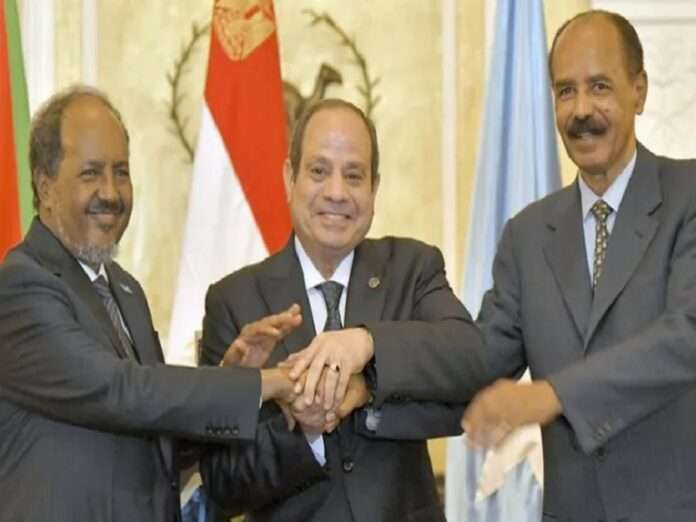The Egyptian, Eritrean, and Somalian leaders produced a joint statement during their meeting in Asmara last week which de facto amounts to the formation of an alliance against their shared Ethiopian foe, which isn’t mentioned in the text but is strongly alluded to if one reads between the lines. Readers can learn more about the Somaliland catalyst behind their latest tensions here and those three’s Hybrid War plans here since the present piece only draws attention to five takeaways from their new alliance:
———-
* Lots Of Optics But Little Substance
Each country expects to gain from the optics of this new arrangement: Egypt is now able to present itself as a rising Great Power with growing influence in East Africa; Eritrea can claim that it isn’t as isolated as the West thought; and Somalia showed that there are others who support it on the Somaliland issue. The problem though is that there’s little substance. Their alliance is mostly just talk, lots of hype, and some speculative military cooperation, the extent of which is unclear but limited by the next point.
* Egypt Can’t Bankroll Anything Serious
Egypt’s debt has nearly quintupled from $34 billion in 2011 before the Arab Spring to $165 billion last year, a significant share of which is from the Gulf States of Saudi Arabia and the UAE, who pledged $22 billion to it in 2022 alone. Egypt also received an $8 billion aid package from the EU and an equal one from the IMF this year. It’s selling land and infrastructure to the Gulf States too out of desperation to stay afloat. Nobody should therefore expect Egypt to bankroll anything serious in East Africa against Ethiopia.
* Its Emirati Creditor Could Cut It Off
Building upon the above, Egypt’s Emirati creditor is very close with Ethiopia and even built Somaliland’s Berbera Port, so there’s a possibility that it could threaten to cut Cairo off if its North African client state destabilizes those two East African partners. This scenario might deter Egypt from going too far with its new alliance and crossing regional red lines that the UAE might consider unacceptable. To be clear, it’s not the UAE’s responsibility to rein Egypt in, but it still has an interest in doing so as explained.
* Ethiopia Remains A Regional Powerhouse
Even if Egypt still goes through with trying to destabilize Ethiopia and Somaliland, it’ll be an uphill battle since Ethiopia remains a regional powerhouse as proven by the simple fact that three countries are uniting to oppose it. Neither can seriously harm it on their own, not even Eritrea with its decades’ worth of experience in waging Hybrid Warfare, hence why they had to join forces to this end. That’s not to say that they can’t cause some trouble, but just that they’re unlikely to ever defeat Ethiopia like they expect.
* Responsibility For Second-Order Consequences
And finally, the second-order consequences of whatever trouble they might ultimately cause for Ethiopia would be their responsibility, such as if they spark another regional conflict that leads to a large-scale refugee crisis spilling over into the EU and/or emboldens terrorists like Al Shabaab. The irony is that all three think that they’re improving their reputations through this alliance, but it might turn out that they end up worsening them even more than they already are depending on what ends up happening.
———-
It was predictable that Egypt, Eritrea, and Somalia would team up together, hence why last week’s Asmara Summit didn’t come as a surprise, but it’s not all that big of a deal for now. The group’s Egyptian ringleader is too broke to fund a regional war and could be deterred from significant involvement in any potential Eritrean-Somalian Hybrid War on Ethiopia by its Emirati creditor. For these reasons, this alliance isn’t anything to worry about at the moment, but it could still cause some trouble later on.








